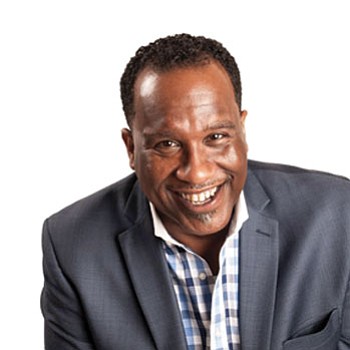In 2014, the number of Baltimore residents living with diagnosed HIV stood at 17,505, according to statistics provided by the Department of Health.
Sixty-five percent were men and 35 percent were women while 76 percent were African-Americans. Latinos made up four percent while 14 percent were white.
In part, due to these statistics, officials with an initiative started by the National Association for the Advancement of Colored People (NAACP) called the Black Church & HIV are hosting a “Day of Unity” on Sunday, July 23, 2017 to bring together pastors to preach about HIV as a social justice issue in conjunction with the NAACP annual convention in Baltimore. The event will feature several faith leaders who promise to work to inspire action and stop what they call the social injustices that have led to the unequal impact of HIV on black America, which comprises 12 percent of the United States population, but 41 percent of all individuals living with HIV.
Courtesy Photos/Day of Unity Organizers
Faith leaders and members of the community join arms in a prayer circle for HIV sufferers.
“HIV disproportionally affects the black community, and any time we see anything disproportionally affecting one group of people more than others, we must question if the root cause has to do with social injustices,” said Pastor William Francis, the lead servant at the Atlanta Faith in Action Center and ambassador of the Black Church & HIV: The Social Justice Imperative Initiative.
“For generations, the Black Church has been a leader for change in the black community on issues of social justice, the initiative is applying this tradition of social justice advocacy to the HIV epidemic,” Francis said. “The Day of Unity is important because it unites faith leaders from across the country to preach about HIV as a social justice issue and really harnesses the power of the pulpit and black churches to fight this epidemic.”
“So often, people with HIV feel alienated from the church and the sense of community it can provide. Day of Unity reverses this and says we see you; we love you; let us pray for you; and let us help you. We are called by God to love all our brothers and sisters and the Day of Unity exemplifies this,” Francis said.
The initiative takes its mission from a famous quote from the African-American author James Baldwin, who said, “Not everything that is faced can be changed, but nothing can be changed until it is faced.”
So, on the Day of Unity, organizers want to pass the message that they want everyone to face HIV together, and put their faith into action.
The Day of Unity began in 2012 and more than 120 churches have signed up to participate in this year’s event— six are in the Greater Washington D.C. and Baltimore area.
Each year, more are recruited to participate and raise awareness about HIV, its disproportionate impact the black community and the role the Black Church can play in turning the tide, according to Francis.
The initiative works to overcome stigma and address HIV as an issue of social justice by conducting faith leader trainings across the 30 U.S. cities which bear the greatest burden of HIV; obtaining formal resolutions from mainline denominations to incorporate HIV messaging into church activities; and integrating HIV-related materials into required course curricula in predominantly black seminaries.
“The higher rates of HIV among African Americans in the U.S. point to the overwhelming injustices in the political, healthcare, economic and educational systems,” Francis said. “During the Day of Unity, I hope to raise awareness of the social injustices surrounding the HIV epidemic to as many people as possible.”
“We encourage participants to get involved in Day of Unity in at least one of three ways, which include, preaching about HIV as a social justice issue, sharing our social media posts and acting by downloading our new resources which start to answer questions as to how we can address HIV in Black America,” Francis said.
For more information about the Day of Unity, visit https://theblackchurchandhiv.org/day-of-unity/.

